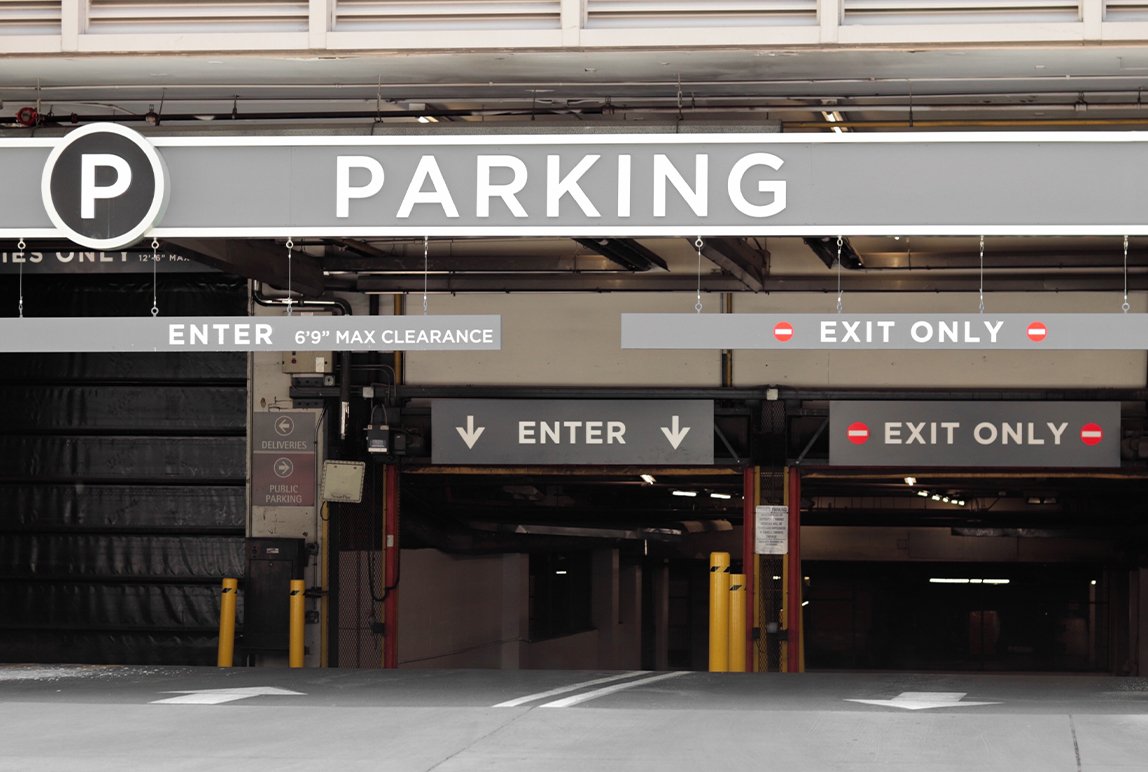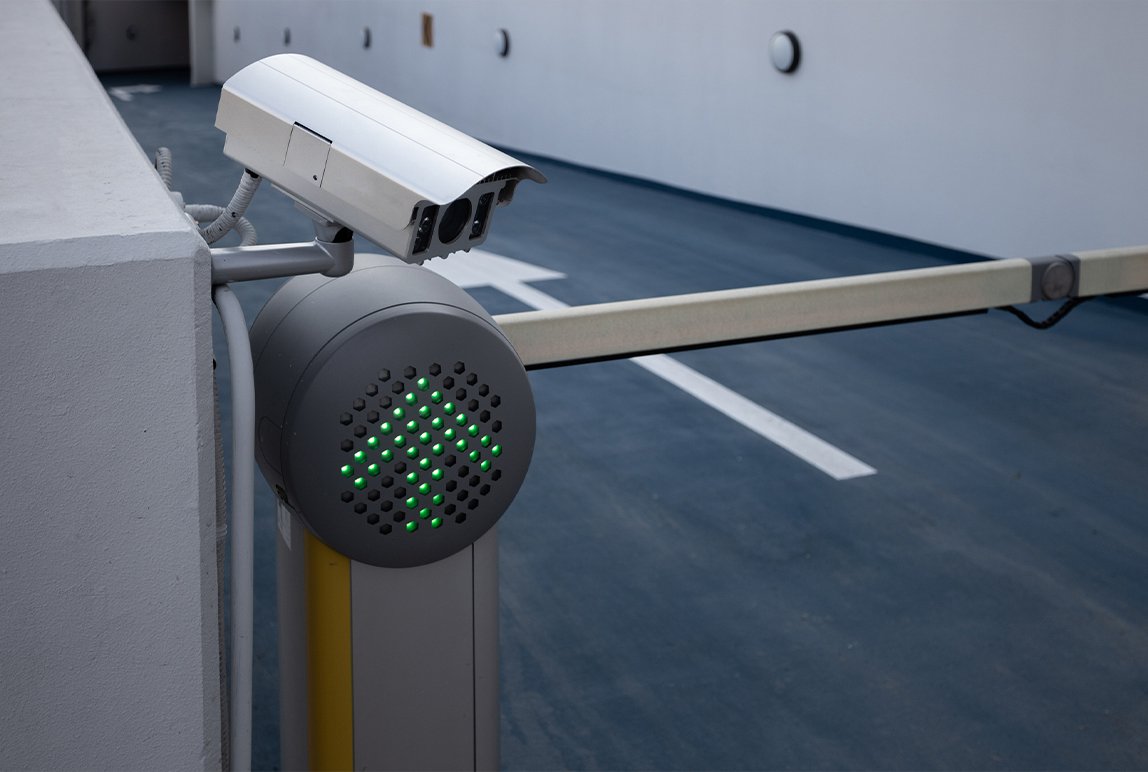How Artificial Intelligence Influences Smart Parking Management
Posted: Jan, 10, 2023 2:19PM ET • 4 min read
The emergence of data driven technology has allowed organizations across all industries to advance more than ever thought possible. It has become an influential part of our everyday lives, from performing simple tasks to enhancing efficiency, socialization and communication. Above all else, Artificial Intelligence (AI) has played a significant role in this societal growth, leading us into an urban Renaissance fuelled by digitalization.
Look around you, the AI driven innovation is revolutionizing the parking and mobility industry in many ways— and will only continue to do so as technologies advance. With its ability to collect and analyze data, favor the knowledge discovery process, finetune operations and processes, and ultimately design complex planning and decision making platforms, there is no doubt that it has become a part of the fabric of advanced parking management.
What is artificial intelligence?
Simply put, artificial intelligence, otherwise known as AI, refers to the simulation or approximation of human intelligence in machines. These software algorithms are capable of performing complex tasks that typically require human intelligence, such as decision-making, language translation, and visual and speech recognition. Machine learning (ML), a subset of artificial intelligence, suggests that computer programs can automatically learn from and adapt to new data without receiving specific instructions but self-adapting to dynamic environments. These techniques enable programs to absorb and structure significant amounts of knowledge, in various forms, without the assistance of humans.
What are examples of AI-based parking technologies?
The parking and mobility industry has increasingly utilized AI-based technologies to meet evolving business and customer needs. Below are several AI-based parking technologies to consider when developing your smart parking management strategy:
Business Intelligence Platform: A business intelligence platform is fuelled by artificial intelligence and machine learning, allowing you to manage your parking ecosystem by extracting correlations, understanding its behavior, anticipating future trends and simulating different scenarios to refine decision making startegies. Most BI platforms come equipped with a custom data processing engine that gives you the power to track detailed information about your system, which will, in turn, support data-driven operations.
Automatic License Plate Recognition: Automatic licence plate recognition (ALPR) is a visual analytics based technology that captures a licence plate passing through the camera’s field of view, opening the ability to create a frictionless experience for the customer. On a business level, ALPR provides added security, access control and personalized customer care. When paired with a business intelligence platform, it can help you make strategic decisions with a good understanding of customer behaviours.
Camera-Based Vehicle Detection Sensors: When paired with license plate recognition technology, camera-based vehicle detection sensors create a seamless wayfinding loop that reduces congestion, increases efficiency, and enables visitors to find parking easily. On a business level, this technology can gather real-time data that helps you to maximize garage efficiency, expand revenue and deploy dynamic pricing opportunities, improve security and enhance operational control.
What are the benefits of AI parking technologies?
Embracing AI-based parking technologies is the first step to future-proofing your parking management strategy. AI-based technologies offer various benefits on both a business and customer level—allowing you to optimize occupancy levels, pinpoint and resolve inefficiencies and offer an significantly improved parking experience.
Thanks to technology fuelled by artificial intelligence innovation, how we live, work, and play have been profoundly transformed and will continue to adapt and evolve. It’s no longer only about getting from point A to point B; it involves everything happening between those two touchpoints for you and your customers.
References
AI-based Smart Parking Solutions: Parking Telecom Blog. Parking Telecom. (2020, April 1). Retrieved December 13, 2022, from https://parkingtelecom.com/en/ai-based-smart-parking-solutions/
By: IBM Cloud Education. (n.d.). What is Artificial Intelligence (AI)? IBM. Retrieved December 13, 2022, from https://www.ibm.com/cloud/learn/what-is-artificial-intelligence
Embrace AI to survive. Kearney. (n.d.). Retrieved December 13, 2022, from https://www.kearney.com/operations-performance-transformation/article/-/insights/will-you-embrace-ai-fast-enough
Frankenfield, J. (2022, September 12). Artificial Intelligence: What it is and how it is used. Investopedia. Retrieved December 13, 2022, from https://www.investopedia.com/terms/a/artificial-intelligence-ai.asp
Haponik, A. (2022, August 18). How can ai help optimize smart parking? Addepto. Retrieved December 13, 2022, from https://addepto.com/blog/how-can-ai-help-optimize-smart-parking/
Share Article:
Featured Articles
ABOUT THE AUTHOR
Emmanuel Lereno
Chief Digital Transformation Officer
As Precise ParkLink’s Chief Digital Transformation Officer, Emmanuel plays a key part in strengthening the company’s industry-leading technology innovation and business intelligence expertise to help our customers drive their digital transformation strategies.
Lereno brings more than 20 years of experience in parking and mobility industry to Precise ParkLink. Joining Schlumberger Systems in 2002, Lereno worked on data-driven oil detection systems after completing a Ph.D. in Business Intelligence. He then joined Parkeon where he served as a business analyst in several European countries and coordinated the delivery of complex parking infrastructure projects.
In 2011, Lereno started to focus exclusively on the North American market as part of the company's strategy to develop its digital solutions portfolio investments and expand its business in the US and Canada. Lereno then assumed the role of Senior Vice President of Digital Services for Flowbird US, where he focused on the expansion of Flowbird smart city solutions for the USA and Canadian markets.
Questions?
Fill out the form below and we will do our best to connect you with a suitable contact.













